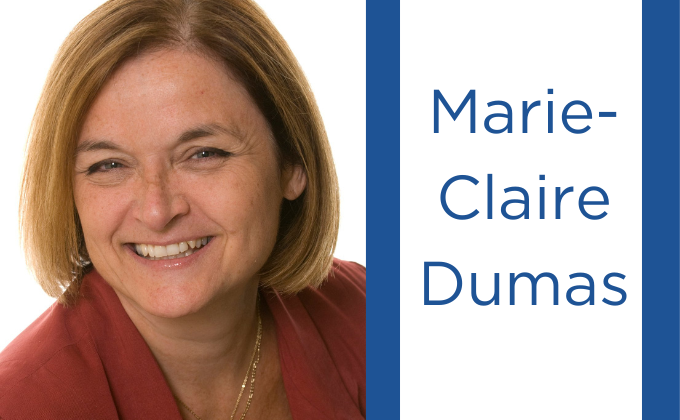
You have recently been appointed Chair of the CECI Board of Directors. How does this new challenge stimulate you?
Marie Claire Dumas (M-C.D.): I would have a multitude of answers to give here, but first and foremost it is the fact of creating impact, and not just any impact: an impact that is structuring and has the greatest possible scope to improve collective well-being. This is, in my opinion, what CECI does.CECI is also a complex organization, with many projects on several continents. I particularly like this complexity and the fact that we are attentive to the different realities shared in different contexts and countries. Finally, I would say that one of the great motivations for me is teamwork; I am a team player, and I am delighted to continue to be involved with CECI.
In your career, you have worked on projects aimed at improving human rights, particularly those of women. Where does this interest and sensitivity for cooperation and women's rights come from?
M-C. D. : It's a bit representative of who I am at heart. Throughout my life I have been animated by questions of social justice. I arrived on the job market at the same time as the development of the feminist movement, which put words and theories on what I felt and recognized as a woman. It's natural for me to work in this perspective. And when we fight for women's rights here, we can't help but think of women all over the world who are also fighting. I'm eager to learn from the experiences and perspectives of women around the world.
What is your role as Chair of the Board of Directors for CECI?
M-C. D.: Obviously to support the management and the team, and to ensure that the organization, in its governance, is managed according to the best standards. We have to make sure that we have the right governance tools and that everything is running smoothly. The Board of Directors is also responsible for the major budgetary follow-up, the monitoring of strategic orientations and the governance framework. Measures are already in place at CECI, but my role is to make sure that we stick to them.
How do you see the next few years for CECI?
M-C. D. The last few years have shown us once again that adaptability is our best ally. We have lived through months of uncertainty with the COVID-19 pandemic and we may have to face other such realities in the future. On the other hand, CECI will continue its internationalization transition within its projects and teams. This is a very important transition, which will require a great deal of attention, analysis, follow-up and implementation.
I also think that there will be an increasing link with the different themes related to sustainable development, whether it is climate change, protection of biodiversity, population growth, urbanization... These realities are undeniably present and closely linked to the challenges of the populations we work with.
What is your greatest wish (legacy) as Chair of CECI's Board of Directors?
M-C. D.: I don't really like the term "legacy"; it's individual, and I like to refer to accomplishments as a team. Maybe that's what my legacy could be: when I leave CECI, I would like to be remembered as having worked well as a team. I only ask to be inspired by the experiences of my peers, while bringing my experiences and expertise to the table.
Many thanks to Marie-Claire Dumas for sharing her enthusiasm and energy with us. We are very happy to have her on our Board!